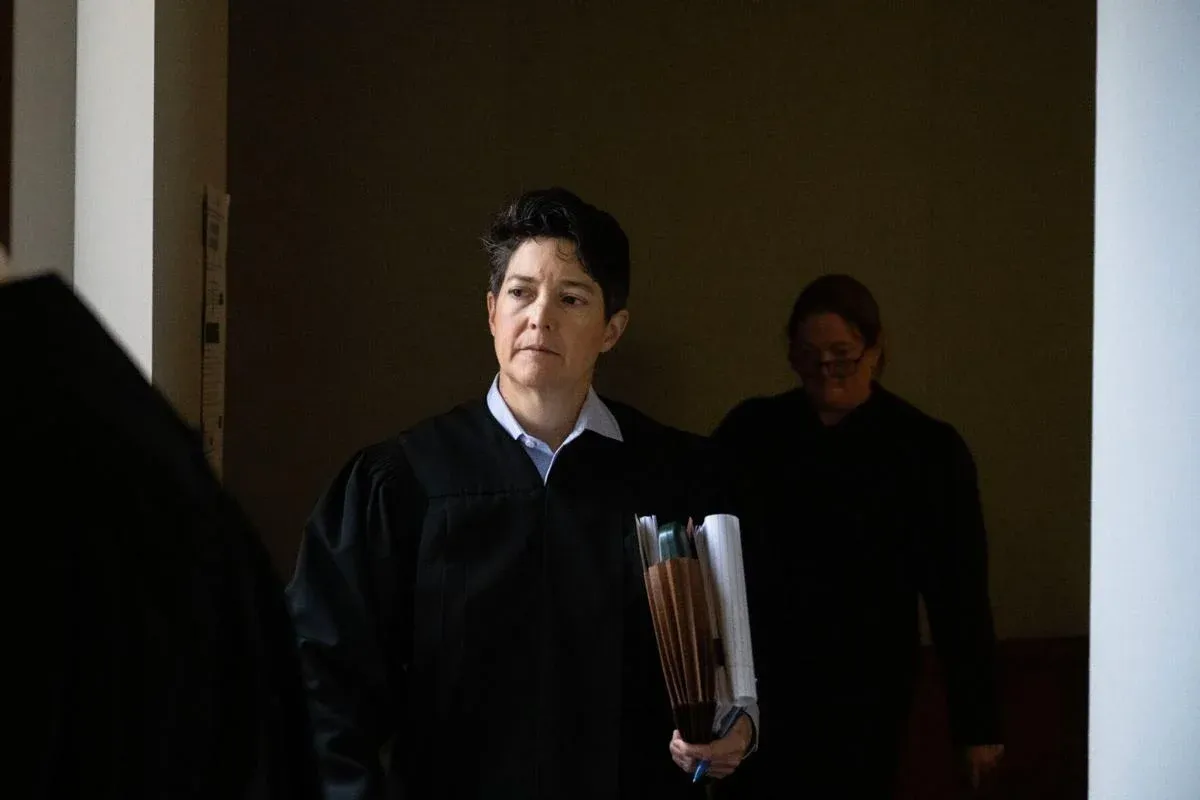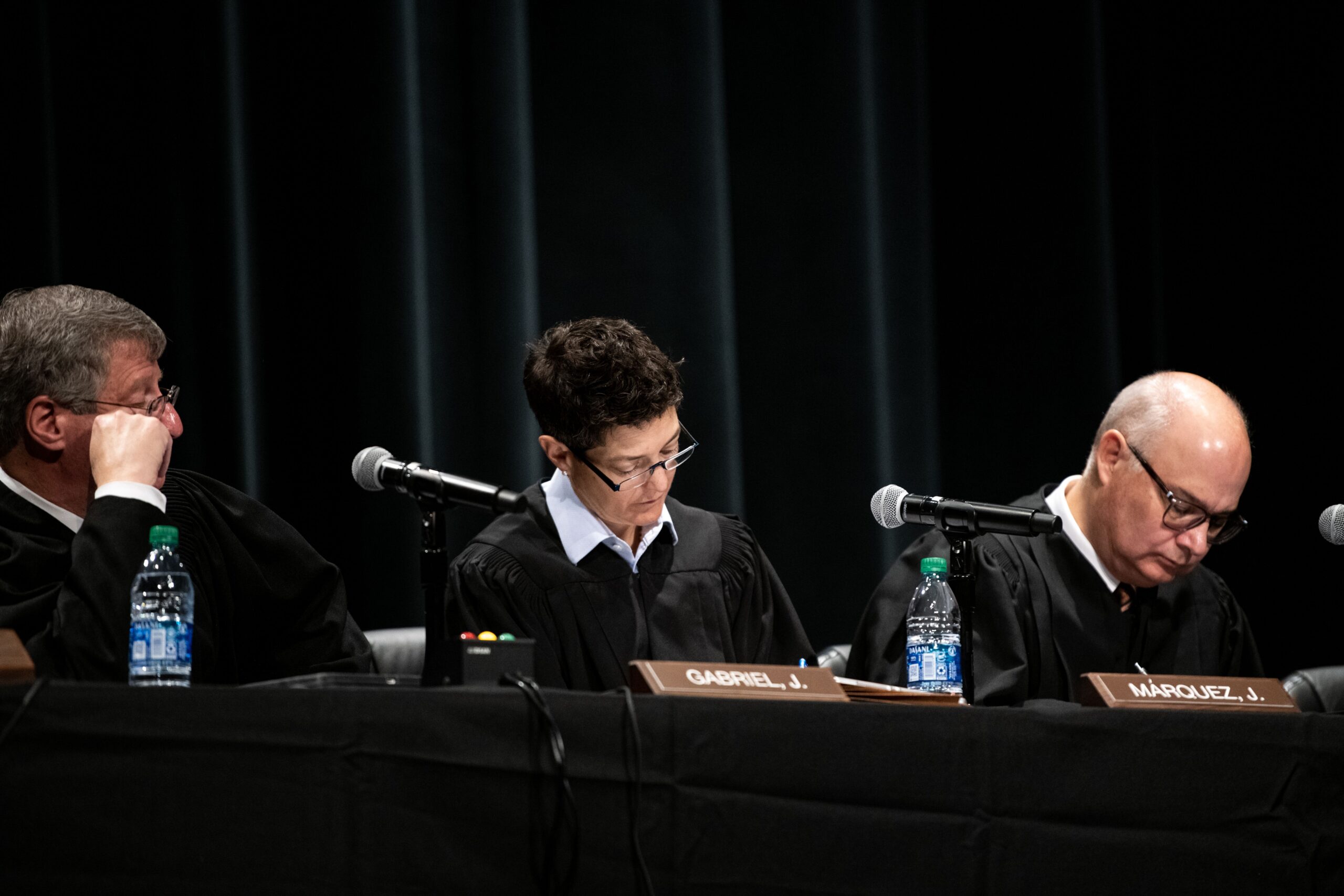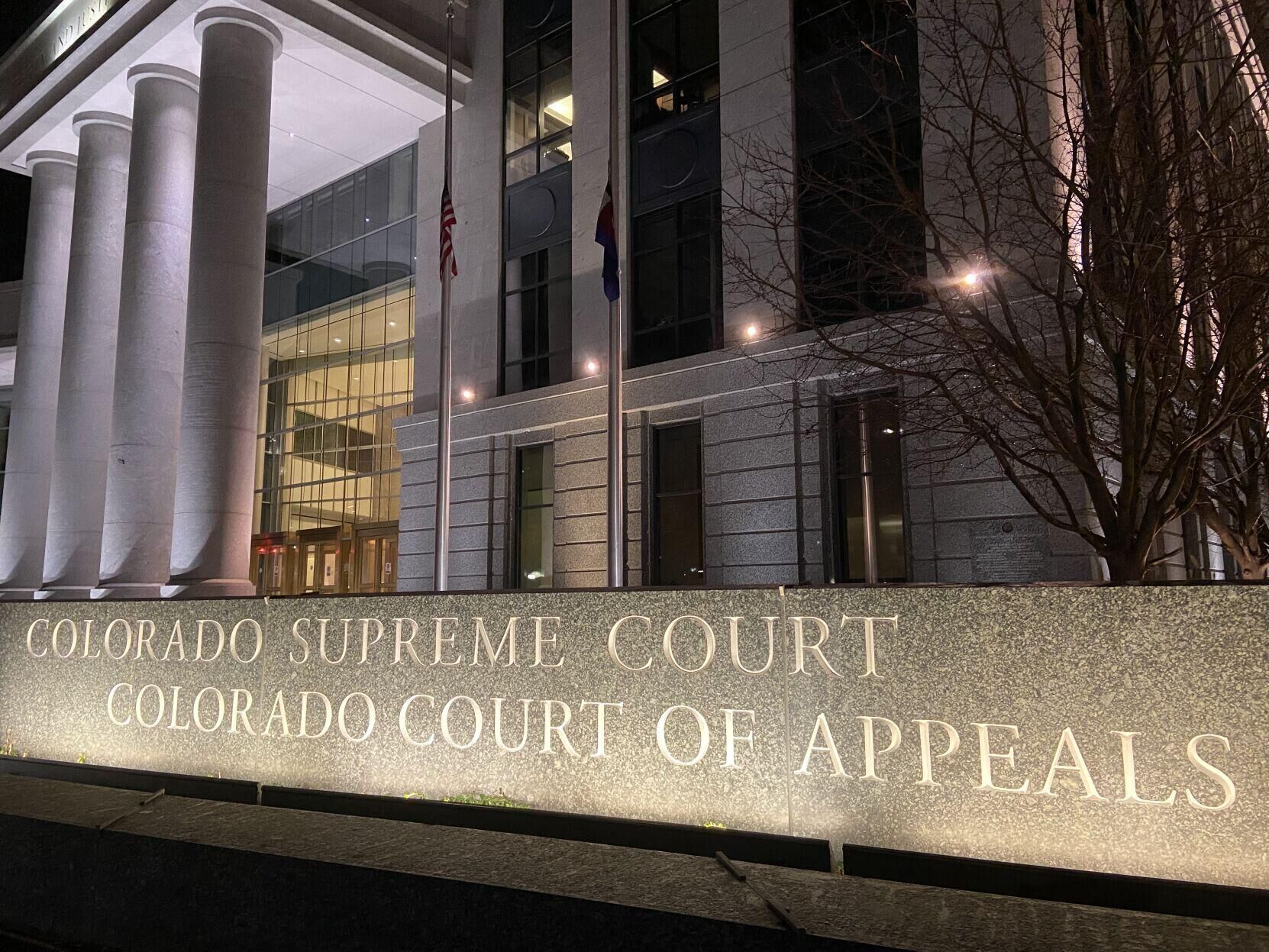Colorado’s chief justice describes threats, invasions of privacy after Trump disqualification decision

Chief Justice Monica M. Márquez spoke out on Thursday about the threats and invasions of privacy members of the Colorado Supreme Court and their families endured after a high-profile 2023 decision to disqualify now-President Donald Trump from the state’s ballot.
“No government official — I don’t care if you’re a legislator, an executive branch official or a judicial officer — no one who is operating government should ever have to fear for their family’s safety just for doing their job,” she said. “If our judicial officers are making decisions not based on the law and the facts in a case before them, but instead are making decisions based on fear for their family’s safety, that means our judicial system is gonna start to unravel.”
Márquez appeared on a virtual panel with three other state judges sponsored by Speak Up for Justice, a group founded by Los Angeles attorney Paul R. Kiesel to address threats against judges and the legal system.
The event also featured an appearance from U.S. Sen. Chris Coons, D-Del., who has introduced a bill to create an entity for monitoring threats against state judges.
“It is horrifying what judges at the state and federal level have gone through,” he said.

Although Márquez did not name Trump or the case specifically, she talked at length about the fallout from her court’s 4-3 decision in December 2023 to find Trump, as a candidate, was constitutionally disqualified from appearing on the state’s ballot because he engaged in insurrection leading up to the Jan. 6, 2021 attack on the U.S. Capitol.
“The intense public reaction to that decision led to a wave of attacks on all seven of us. People who were unhappy with us did not distinguish between who was in the majority and who dissented,” she said.
Márquez added that the court was immediately “overwhelmed with hateful phone calls and voicemails and emails.” The justices’ personal information made its way online and they received hateful messages on their personal cell phones.
“Many of those messages in certain cases were overtly racist or overtly misogynistic. Overtly referred to sexual violence. Were overtly homophobic,” she continued. “I spoke to a number of our staff who were going home in tears from all the horrible things that they had to hear.”
Justices’ family members received threats, too. In one instance, someone hacked the voicemail of a justice’s family member to leave a “profane” outgoing message, Márquez said. Other people were able to “spoof” the identities of family members and call justices’ phones to yell at the justices when they answered.
“Because our personal email addresses were doxed, many of us found out that we had been signed up for various unwanted subscriptions, including various pornographic websites,” Márquez said. “We all had to work hard to change our passwords.”
Nationally, judges who have ruled against the Trump administration have received unwanted pizza deliveries at their homes in the name of Daniel Salas, the son of U.S. District Court Judge Esther Salas who was murdered at their home in 2020 by an attorney posing as a delivery person. The current tactic of pizza deliveries is meant to signal that the sender knows where the judge lives.
“In Colorado, the pizza delivery has a very specific and different connotation,” said Márquez, referencing the 2013 murder of a pizza delivery driver and the killer’s use of his uniform to assassinate the head of Colorado’s prison system, Tom Clements, on his Monument doorstep.

In one instance, a member of the Supreme Court attempted to get a Domino’s to halt the pizza deliveries. The manager was unable to trace the calls because they misleadingly showed they were coming from a local FBI office.
Finally, Márquez said one member of the court was “swatted” at their home, after a caller used available information about the justice’s child to summon SWAT officers for a serious emergency that did not really exist.
At a Colorado Springs judicial conference last year, Justice Melissa Hart revealed she was the one whose house was swarmed by nine officers with guns pointed at her and her family. She called it the “scariest night of my life.”
There were other instances of swatting, said Márquez, including on Christmas Day.
“And in response to other brewing threats, several of the justices were advised to vacate their homes for a few days,” she continued. “The impact was felt by our neighbors, by our court staff, by our extended family members — some of them not even in Colorado — and certainly by our spouses and our children, none of whom had anything to do with the decision that was issued by our court.”
The U.S. Supreme Court later reinstated Trump on Colorado’s ballot and concluded states could not disqualify presidential candidates on their own.

Other participants in the virtual event included County Judge Jennifer J. Johnson of Florida. She appeared in an animated video created by a disgruntled litigant, who shot the judge’s character in the head and called her by name. Although law enforcement did not immediately take action, the man was ultimately convicted and sentenced to 15 years in prison for a threat-related charge, she said.
Administrative Judge Carroll J. Kelly, also of Florida, described receiving a deluge of emails seemingly orchestrated by a vindictive litigant, plus fraudulent activity on her airline and credit card accounts. Police also chased a trained sniper away from her home and she had to move out for a period.
“It was very clear, as time passed, that the women on our court were receiving more of that attention,” said Márquez, “and the flavor of that attention was gendered.”
She added that trial judges in Colorado are facing similar types of intimidation as their counterparts in other states, and she is concerned that fewer people will even sign up to be judges as a result.
Salas, the federal judge from New Jersey whose son was murdered, said there is no way of knowing how many state judges are being threatened due to their positions, making a central clearinghouse necessary.
“This is not just an inconvenience,” she said. “I just want to make sure we distinguish between offensive calls and outright threats to judges.”













